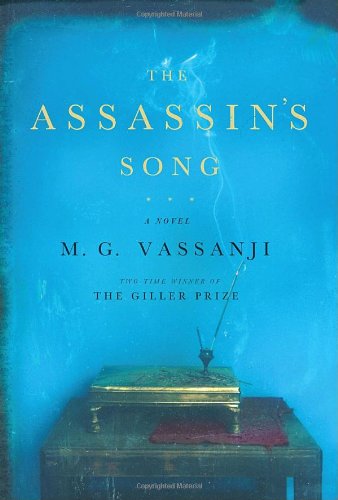The Assassin’s Song
On the evening of his eleventh birthday, Karsan Dargawalla’s father, “a great and divine presence in their village,” takes his son for a stroll. The father reminds the son of his duties as lord and guardian of Pirbaag. Like his grandfather and all their forbears before them, someday Karsan will become the Saheb of Pirbaag, the shrine and burial site of Nur Fazal, a 13th-century Muslim Sufi holy man and mystic. Karsan is terrified. When he grows older, Pirbaag confuses him. Neither Hindu nor Muslim, the shrine encompasses both traditions. Karsan wants to be ordinary. He wants to study and travel. The rift between father and son seems final when Karsan leaves India to study at Harvard.
What happens the next thirty years Vassanji, two-time winner of the Giller Prize, explains evocatively, seamlessly switching between time periods not only in Karsan’s lifetime, but going back to the origins of Pirbaag. Karsan’s world is depicted imaginatively, and the characters are lovingly drawn. Vassanji engages the reader’s sympathies as the family’s problems deepen, and Mansoor, Karsan’s younger brother, becomes a militant Muslim, and, perhaps, a terrorist. With Karsan and his family, India struggles. “We are too complex a nation, too raw a people,” the author writes. The Assassin’s Song is much more than a journey of self-discovery. Karsan tells his story “to defy the destroyers.” The melancholic exploration of the meaning and worth of religious traditions and of the futility of sectarian violence is a cry against brutality and dogmatism, and a reminder of what is worth preserving.










